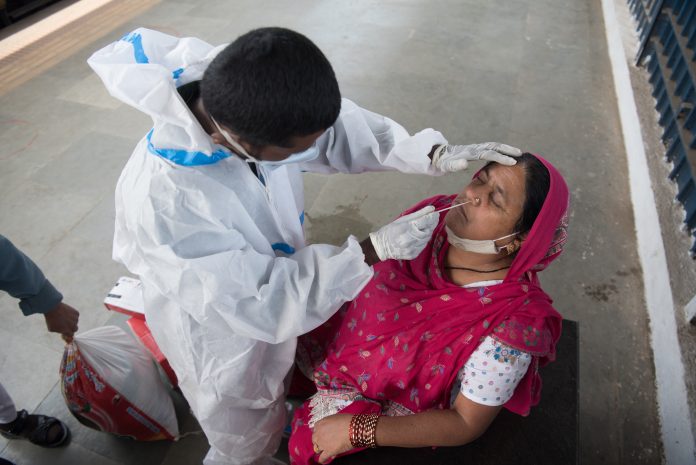Global “vaccine nationalism” is the dominant approach to the virus so far – but according to researchers at Princeton and McGill University, this mentality increases the chances of a new variant
The authors describe the current state of vaccine allocations as tending to “vaccine nationalism”, as countries continue to stockpile vaccination for their own citizens while ignoring the requests of international health bodies and countries in the Global South.
Co-first author Caroline Wagner, an assistant professor of bioengineering at McGill University, said: “Certain countries such as Peru and South Africa that have had severe COVID-19 outbreaks have received few vaccines, while many doses have gone to countries experiencing comparatively milder pandemic impacts, either in terms of mortality or economic dislocation.”
For instance, the WHO asked richer countries to hold-off on administering third doses of the vaccine, suggesting that any available vaccines are given to countries which are struggling to reach even 3% double-vaccinated.
However, neither Israel or the UK changed their third-dose schedule.
“Infections are resurging” in areas without vaccines
This study, published in Science, looks at how vaccine nationalism may impact global trajectories of COVID-19 case numbers and increase the potential emergence of novel variants.
A separate report by the Institute for Government and Wellcome Trust found that the Global South is still awaiting the “deadliest” phase of the COVID pandemic.
“As expected, we have seen large decreases in case numbers in many regions with high vaccine access, yet infections are resurging in areas with low availability,” said co-first author Chadi Saad-Roy, a Princeton graduate student in ecology and evolutionary biology and the Lewis-Sigler Institute for Integrative Genomics.
“Our goal was to explore the effects of different vaccine-sharing schemes on the global persistence of COVID-19 infections — as well as the possibility for the evolution of novel variants — using mathematical models.”
The researchers projected forward the incidence of COVID-19 cases under a range of vaccine dosing regimes, vaccination rates, and assumptions related to immune responses.
They did this in two model regions: One with high access to vaccines — a high-access region (HAR) — and a low-access region (LAR). The models also allowed for the regions to be coupled either through case importation, or the evolution of a novel variant in one of the regions.
Unsurprisingly, the study revealed that increased vaccine-sharing resulted in reduced case numbers in LARs.
increased vaccine-sharing resulted in reduced case numbers
Co-author Michael Mina, an assistant professor at the Harvard T. H. Chan School of Public Health, said: “Because it appears that vaccines are highly effective at reducing the clinical severity of infections, the public health implications of these reductions are very significant.”
“High potential for viral evolution” in places with low vaccine access
“Overall, the models predict that sustained elevated case numbers in LARs with limited vaccine availability will result in a high potential for viral evolution,” said senior author Bryan Grenfell, Princeton’s Kathryn Briger and Sarah Fenton Professor of Ecology and Evolutionary Biology and Public Affairs and an associated faculty member in HMEI.
“As with our earlier work, the current study strongly underlines how important rapid, equitable global vaccine distribution is. In a plausible scenario where secondary infections in individuals who have previously been infected strongly contribute to viral evolution, unequal vaccine allocation appears particularly problematic.”











